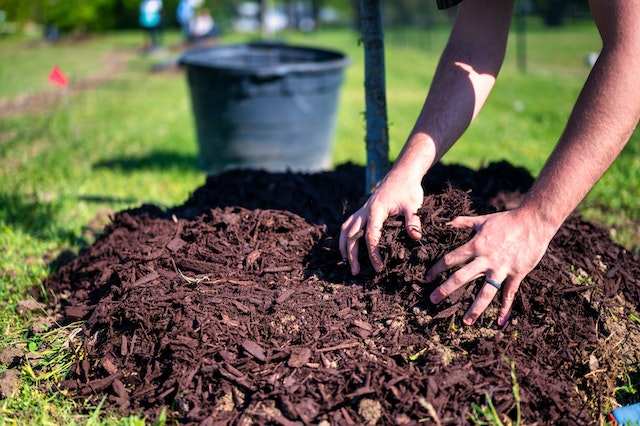You are getting all the severe benefits if you’re mulching. Here are a few reasons to start now: Mulches reduce evaporation, keep the soil moist and inhibit weed growth. They also improve the soil structure and increase the availability of micronutrients.
Reduces Soil Erosion
Mulching helps reduce erosion by holding down the soil, so it doesn’t wash away during heavy rains or if the soil is too dry. Organic mulches such as bark, shredded leaves, and compost absorb rainwater and keep it in the soil rather than running off the side of the property or into nearby waterways. Besides helping with erosion, mulch has several other benefits for your garden or farm. The nutrients contained in the mulch feed your plants, making them healthier and stronger over time. In addition, mulching also slows down stormwater runoff by acting as a shield against the elements. It can also help protect your soil against weeds and disease.
Retains Moisture
Mulching a plant’s crown or tree base can reduce water evaporation by up to 80 percent. This is a big deal in dry climates where rainfall is scarce. In addition to moisture retention, mulching can also help moderate soil temperatures. This helps prevent overheating during the summer and keeps the ground cool during chilly weather. Besides the apparent moisture-retention benefit, mulching can improve a plant’s health and yield. This is achieved by reducing weed growth, keeping the soil surface cooler and moist, and improving air circulation through mulch’s insulating effects.
Reduces Weed Growth
Mulching reduces weed growth in two ways: it blocks the light that weed seeds need to germinate and prevents bare soil from becoming a growing medium for weeds. In addition, mulches contribute beneficial organic matter to the soil, increasing soil fertility and improving plant growth. Whether you’re growing trees and shrubs, perennials, annual flowers or vegetables, a layer of mulch will prevent weed seed germination. It can also be a vital component of a comprehensive weed control plan, pre-emergent herbicides and hand weeding.
Reduces Soil Temperature
Mulches help reduce soil temperature, an important factor for plant growth. When the soil is too hot, it can cause damage to plants, such as reduced germination or seedling survival. In addition, mulching helps to improve the growth of a variety of plants and increases their yields. These include herbs, grasses, vegetables and tree species. Mulching can be made from various materials, including straw, leaves, bark, wood chips and compost. The most effective mulches are organic since they can decompose and release nutrients into the soil.
Improves Plant Growth
Mulches help improve plant growth by inhibiting certain diseases and promoting the formation of healthy roots. It also improves soil aeration and structure and may increase nutrient availability. A thin layer of mulch 2 to 4 inches thick is ideal for most plants and trees. The mulch should be loose enough to allow water to penetrate the base of the plant. Although mulching helps soils maintain a desirable moisture balance, too much can cause a buildup of nitrogen and alkalinity that harms plant health. Too much inorganic mulch, such as stone, lava rock, and screened gravel, can also retain cold or heat longer than is beneficial for plants. This can cause root rot in some cases.






